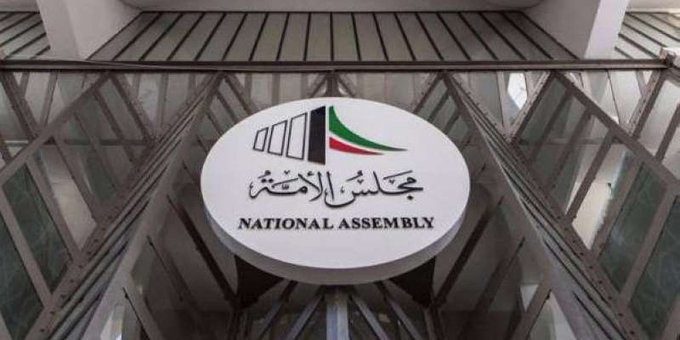26/08/2023
26/08/2023

KUWAIT CITY, Aug 26: MP Saad Al-Khanfour has submitted a bill on amending Article 38 of the Traffic Law in order to impose harsher penalties on whoever drives under the influence of alcohol, drugs, intoxicants or any substance that affects one’s mental state. The bill stipulates the following penalties: three years imprisonment or a minimum fine of KD5,000 and cancellation of the driving license for three years, which will be extended to five years for repeat offenders. In case of an accident resulting in damages, injuries or deaths, the driver who is under the influence of any of the above mentioned substances will be imprisoned for 15 years and fined KD20,000 minimum; in addition to the cancellation of the driving license for seven years or 15 years for repeat offenders.
Meanwhile, MP Abdulhadi Al-Ajmi asked Minister of Foreign Affairs Sheikh Salem Al- Sabah about the appointment of Kuwaitis in Arab and international organizations like the ambassador, secretary general or director; if they are appointed after the publication of recruitment advertisements for qualified citizens to apply; regulations for the renewal of the tenure of those who occupy such positions and if the ministry has rejected anyone nominated for these posts. Al-Ajmi forwarded queries to Deputy Prime Minister, Minister of Oil, State Minister for Economic and Investment Affairs and acting Minister of Finance Saad Al-Barrak about the information he obtained that the Secretariat General of Kuwait Focal Point for Environment Projects announced that all jobs for Kuwaitis, except the Secretary General position, have been vacant for almost one year. He also cited the report of the State Audit Bureau (SAB) on the low productivity of the Secretariat General, which focuses on vegetation and soil pollution.
He wants to know the reasons for the dismissal of Kuwaiti employees despite the large number of projects lined up for the coming years. He requested for copies of the approval of the Civil Service Commission (CSC) on the dismissal of these workers. He also inquired about the rationale behind the payment of indemnity to the secretary general and directors even if they are still in office. Al-Ajmi asked Minister of Electricity, Water and Renewable Energy and acting Minister of Education Jassem Al-Ostad to provide him with a copy of the executive regulations for the Secretariat General of the Private Universities including the number, names, positions and monthly allowance of the members. He inquired if the Secretariat General conducted studies on developing education.
If yes, he demanded for copies of such studies. He wants to know the requirements and conditions to obtain a license for the establishment of private universities, appointment of lecturers, procedures and laws adopted to follow up private universities and ensure their commitment to the relevant regulations, list of private colleges and institutes, date of inception, list of chairpersons and deans, number of Kuwaiti employees compared to expatriates, amount paid to every private university since 2018 till date, and expenses on those studying industrial engineering, mechanic engineering, mass media, international relations and information technology.
MP Jenan Bu Shehri forwarded queries to Al-Ostad about the measures taken by the Public Authority for Applied Education and Training (PAAET) regarding plagiarism cases, copies of such cases from 2010 till date and disciplinary action taken against those involved. MP Bader Nashmi Al-Anzi asked Al-Ostad if the Public Authority for Agriculture Affairs and Fish Resources (PAAAFR) has allocated land for the establishment of public parks in Jaber Al-Ahmad City and copies of contracts in this regard, if any. He also forwarded queries to Minister of Health Ahmed Abdulwahab Al-Awadhi about the number of Kuwaiti doctors in public hospitals and clinics, number of Kuwaiti doctors who graduated recently or interns who been accepted by the Kuwaiti medical board in the last five years, if any of the interns have been accepted by the Saudi or Jordanian medical board, if expatriate doctors were appointed to administrative posts, and if these expatriate doctors are still receiving the same allowances granted to their colleagues in the hospitals and clinics By Saeed Mahmoud Saleh Arab Times Staff


